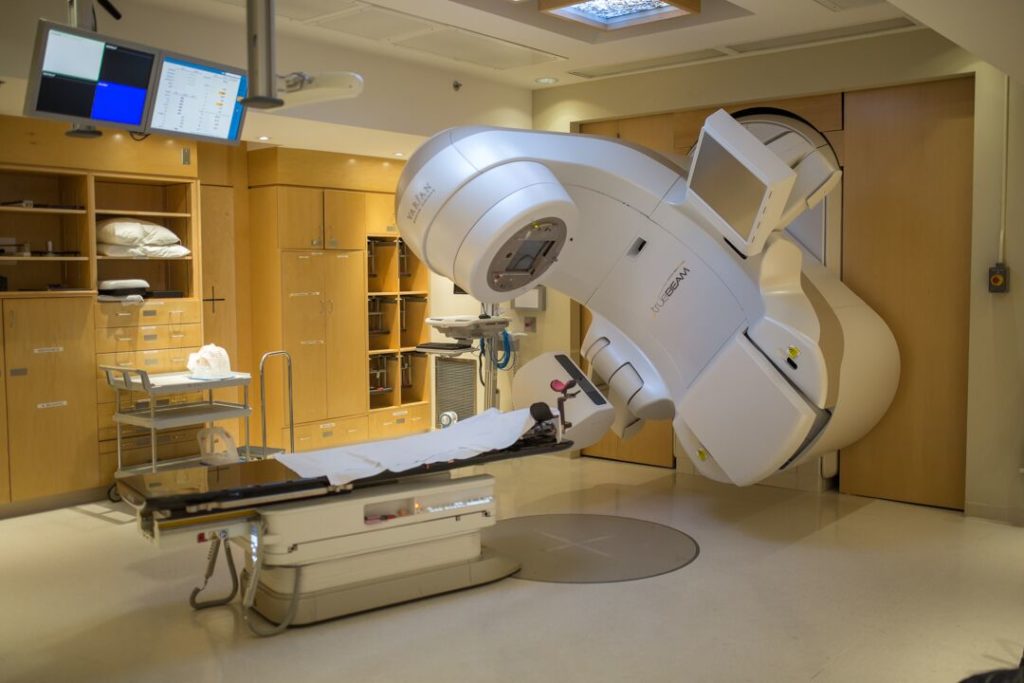
Coping with side effects of radiation for breast cancer
By: Michele Cardoso, clinical specialist radiation therapist, Juravinski Cancer Centre and Dr. Barb Strang, radiation oncologist, Juravinski Cancer Centre
Treatment for breast cancer can be tough on the body. Common side effects from breast cancer radiation treatment include skin irritation and fatigue. Patients may also feel stress and anxiety. A large team of health care providers assess and monitor side effects patients are experiencing, but there are strategies you can use at home to cope as well.
Skin irritation
The skin affected by radiation can feel dry, red, warm, itchy and tender. Skin reactions usually start after the second week of treatment and peak about one week after treatment, resolving gradually four to six weeks later. Skin reactions can be worse in areas of increased heat or friction, and in skin folds such as the armpit and under the breast. Keeping skin clean and well-hydrated can help.
• When bathing, gently wash skin with lukewarm water and mild unscented soap. Gently pat dry with a soft towel.
• Avoid scratching or scrubbing.
• Use Glaxal Base cream three times a day, starting on or before the first day of treatment.
• Avoid shaving underarms; if you must shave, use an electric shaver and shave intact skin only.
• Deodorant or antiperspirant can be used on intact skin.
• Avoid makeup, perfume or aftershave in the treated area.
• Wear clothes that minimize heat and friction to skin. Wear a supportive bra without underwire.
• Protect skin from temperature extremes, sun exposure and direct sources of heat or cold such as hot water bottles, heating pads, hot tubs, saunas or ice packs.
Fatigue
Patients may feel tired during their treatment and have difficulty sleeping at night. This usually improves over the four to six weeks after treatment.
• Rest during the day if needed, and pace yourself.
• Get regular, moderate exercise throughout treatment after afterwards. Locally, exercise programs for cancer patients include Wellwood programs at Hamilton Health Sciences, the YMCA-based CanWell program and the YWCA Encore program.
• Make healthy eating choices to improve nutrition and energy. Dietitians are available through the Juravinski Cancer Centre (JCC) Supportive Care Department to help.
Emotional Health
Patients may feel stress, anxiety, restlessness and sleeplessness.
• The JCC Supportive Care Department provides services to help meet the emotional, physical, social and spiritual needs of cancer patients and their families.
• Wellwood offers a variety of support services including breast cancer peer support.
